Yorkshire Terrier grooming and coat care
Article
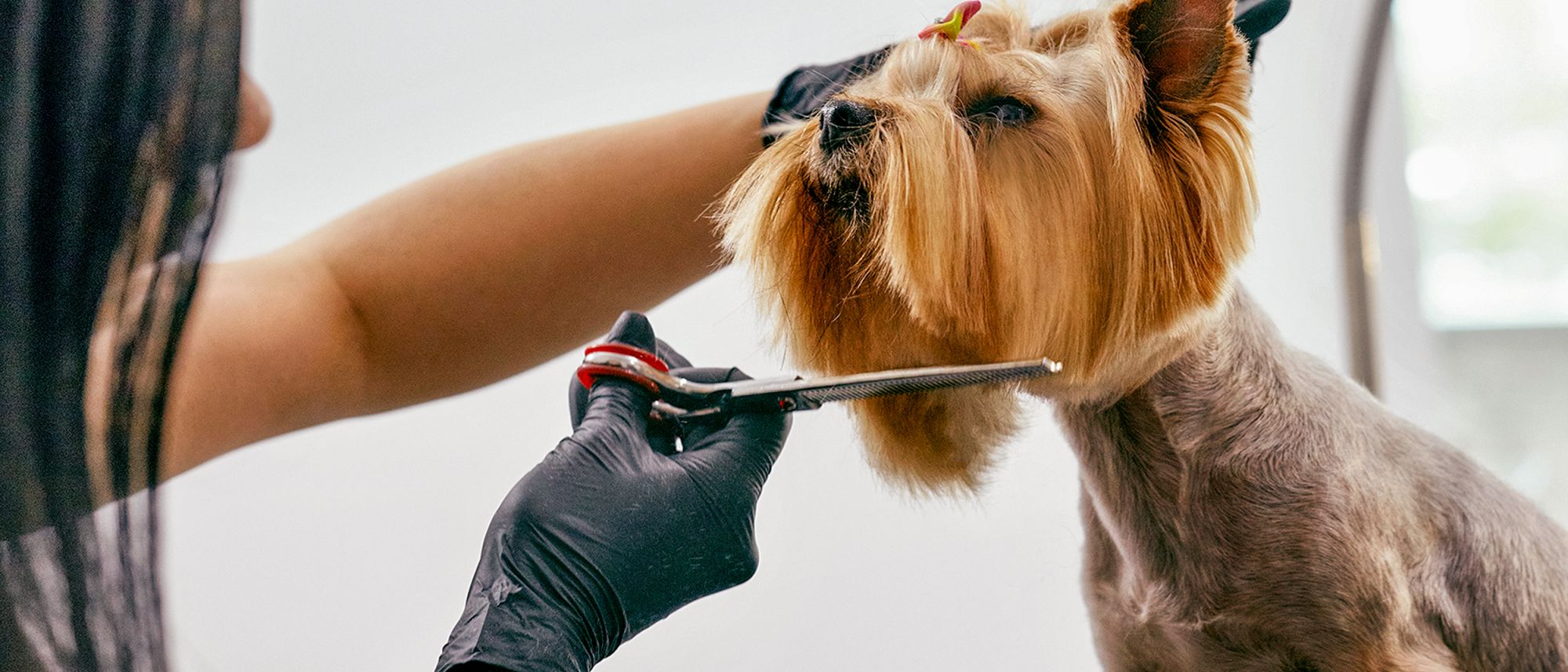
How a Yorkshire Terrier’s coat is different
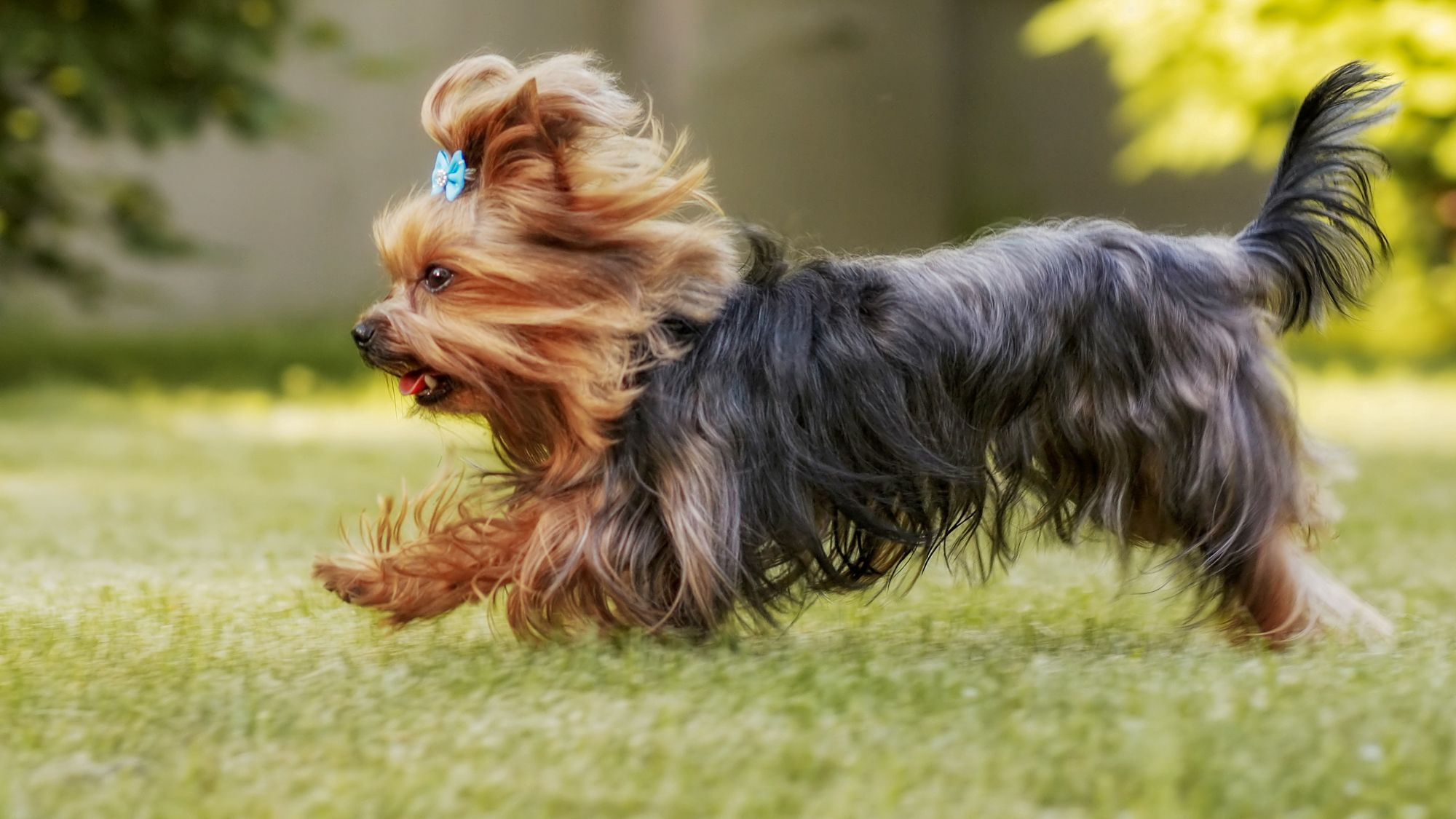
Do Yorkshire Terrier’s shed?
Whatever type of coat a dog has, hairs die and new hairs grow in their place. However, because Yorkshire Terriers don’t have an undercoat, they don’t shed or moult like many other breeds. This applies to Yorkshire Terriers with short hair and long hair.A nourishing diet for your Yorkshire Terrier’s skin and coat
Tailored nutrition can provide important support for many areas of your dog’s body, including their skin and coat.As your Yorkshire Terrier’s coat grows continuously, it uses a large proportion of the nutrition you provide for growth and to maintain its condition and colour.
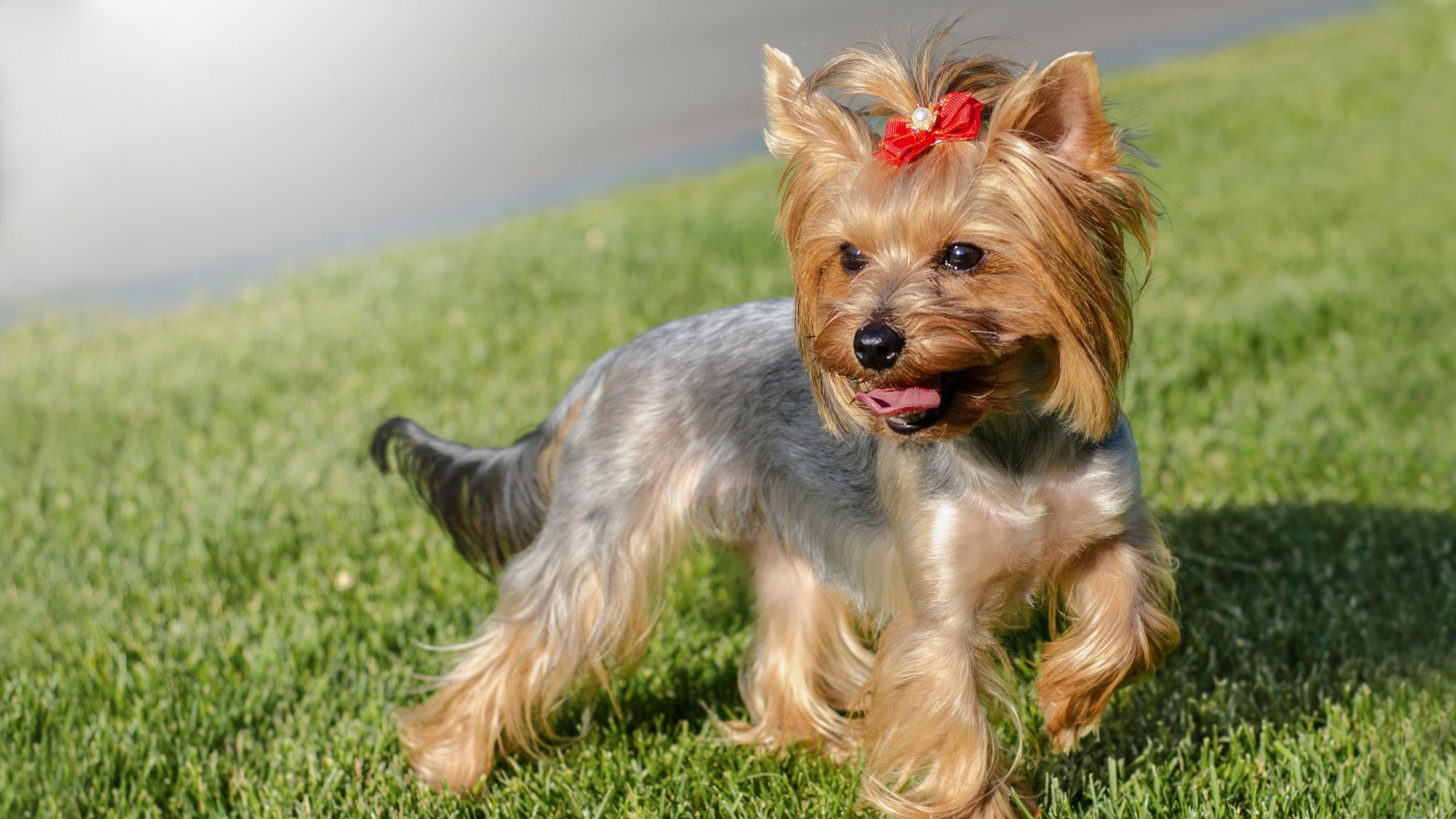
The skin, meanwhile, is the largest organ and plays a vital role in protecting the body and helping your dog to regulate its temperature. It renews every three weeks and so, like the coat, is greedy for nutrition. Many factors can cause or encourage skin issues in dogs, including inappropriate grooming and an unbalanced diet. And, as Yorkshire Terriers have sensitive skin, it’s important to take particular care.
To develop and maintain healthy skin and hair, your Yorkshire Terrier needs the right balance of the following nutrients.
Protein
Fats
Carbohydrates
Minerals
Tailored food as unique as their coat and skin
Feeding your Yorkshire Terrier with a carefully tailored diet can help support and maintain the health, condition and appearance of their skin and hair. Royal Canin Breed Health products contain the right balance of nutrients to strengthen and support these sensitive features which are unique to the Yorkshire Terrier.
How often should you groom your Yorkshire Terrier?
Your Yorkie’s long, silky coat needs special attention – not just to keep it looking good but for hygiene and health reasons too.Regular grooming is essential for their wellbeing, including daily brushing to remove dead hairs and tangles and to keep their skin healthy. Brushing removes the dust and debris your Yorkshire Terrier’s coat picks up during the day. And it helps to stimulate the production of sebum, which waterproofs their coat and keeps their skin moisturised. Brushing also gives you a good opportunity to check for cuts, thorns and parasites.
Around once a month, your Yorkshire Terrier will need professional grooming, including their hair trimming.
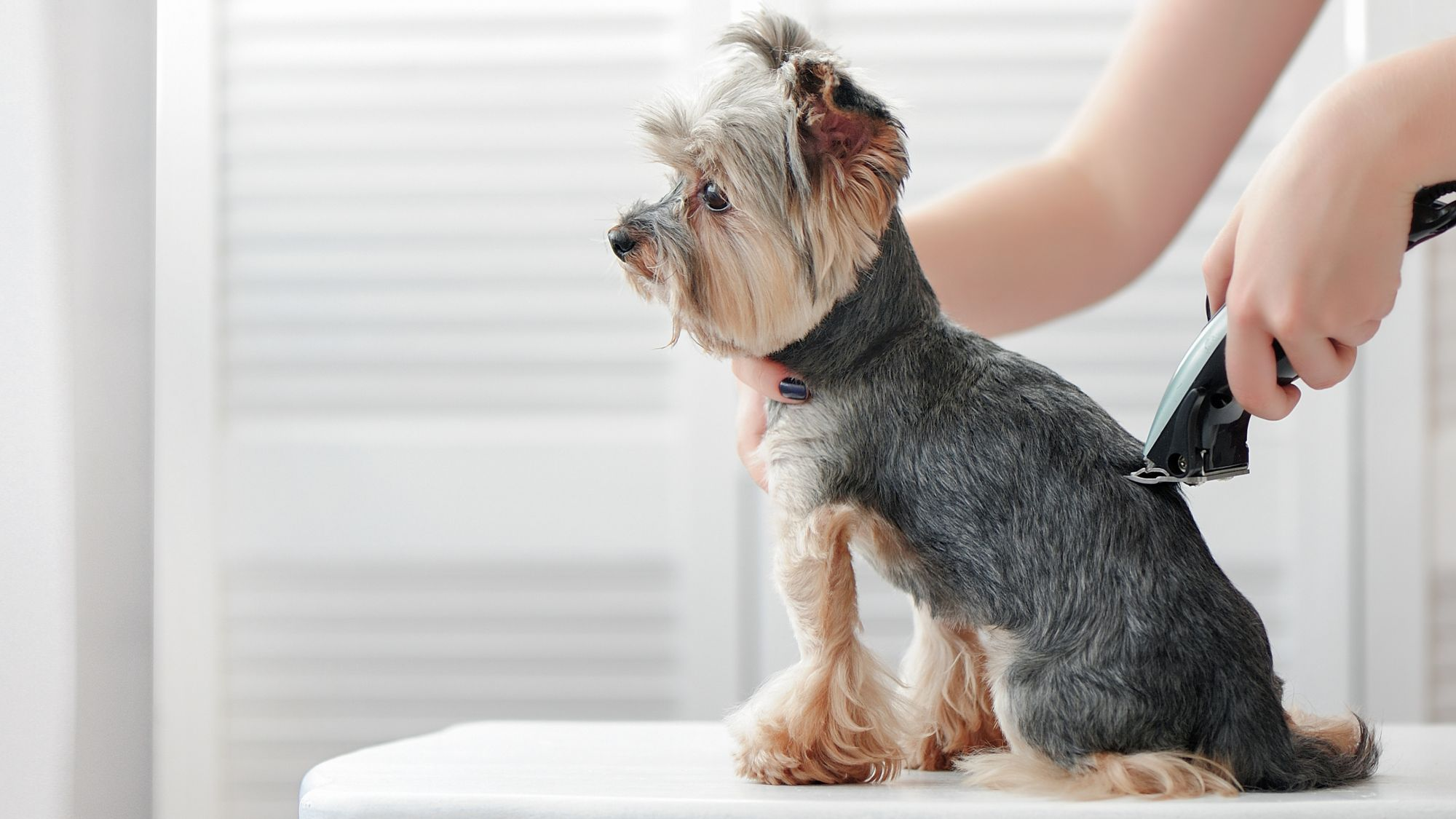
When to start grooming your Yorkshire Terrier
It’s best to get your puppy used to being handled by people as soon as possible, which will help to make grooming stress-free as they get older.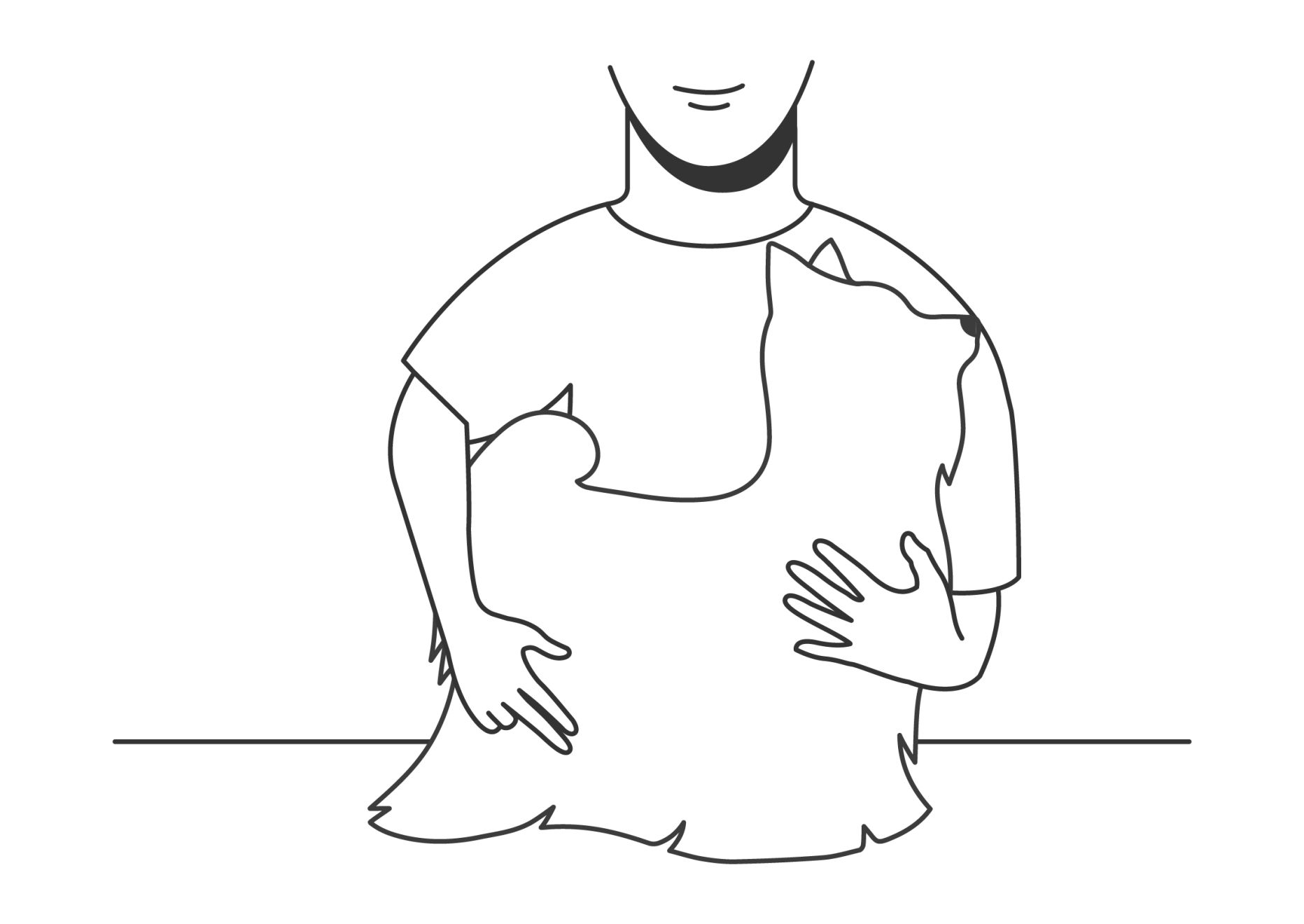
To begin with, each day use a soft brush to gently stroke your puppy’s back, always giving praise when they stay calm and cooperate. You could even use part of their daily kibble allowance, from a balanced diet such as Yorkshire Terrier Puppy, to encourage good behaviour during grooming. When they’re used to their back being brushed gently, you can move on to brushing other parts of their body.
As your Yorkshire Terrier will need regular trimming, it’s a good idea to get them used to visiting a professional groomer at a young age too. Make sure you choose someone with the highest standards of hygiene and animal welfare.
How to groom your Yorkshire Terrier
Each day, use a slicker brush to loosen any knots, working in the direction that hair grows. Take care, particularly if your Yorkshire Terrier’s hair is long, as this can pull at the skin. You can also use a bristle brush to add sheen to your Yorkie’s coat. And you can use a wide-toothed comb to untangle hair around their hocks, tail and paws.Don’t use a nylon brush on your Yorkshire Terrier; they tend to break the hairs and could ruin their coat.
As well as caring for your Yorkie’s special coat, you’ll also need to keep their teeth, eyes and ears clean as part of their grooming routine.
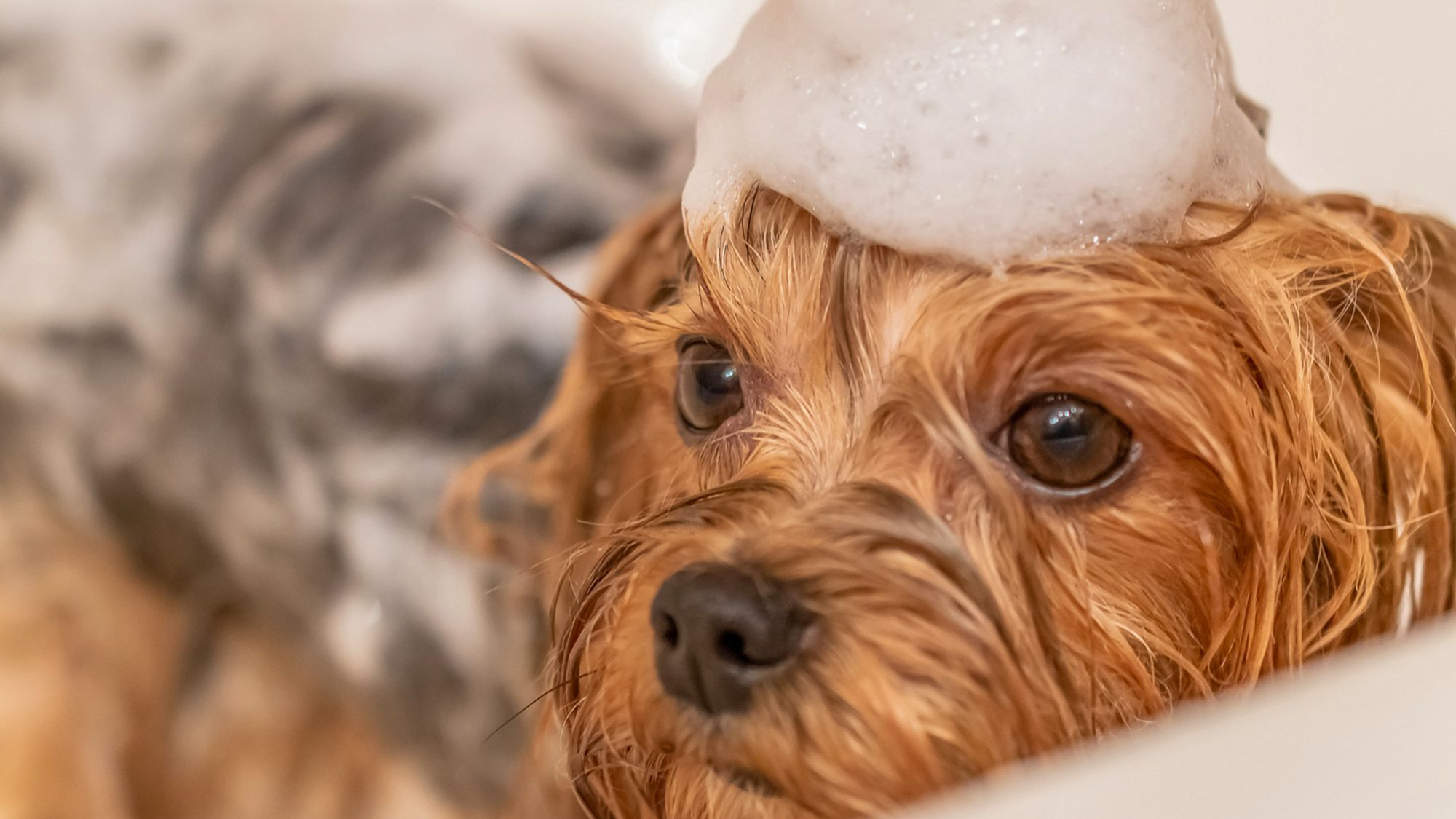
Bathing a Yorkshire Terrier
Dogs shouldn’t be bathed too often as it removes the natural oils that protect their skin and coat. Puppies also shouldn’t be bathed before they’re three months old. From then on, though, you should bathe or shower your Yorkshire Terrier every one to three months. And if they enjoy swimming, make sure you rinse their coat with clean water after each swim.
To ensure a comfortable bath for your Yorkshire Terrier, follow these steps.
- Begin by brushing their coat thoroughly to get rid of any knots.
- Stand your Yorkshire Terrier on a rubber mat in a large bowl or baby bath. This will help to prevent them from slipping and getting injured or becoming afraid of being bathed.
- Wet their coat all over using lukewarm water.
- Lather their coat with a special shampoo for puppies or dogs, taking care not to get it in their eyes or ears. Never use shampoo for humans, even babies, as they’re too acidic and irritate a dog’s skin.
- Allow the shampoo to act for a few minutes, then rinse it thoroughly with lots of water. It’s best to rinse the head last because dogs often like to shake their head dry.
Wipe your puppy or dog down vigorously with a towel and keep them in a warm room until they’re properly dry. You can use a hairdryer to speed up the drying process, but get them used to this gradually and take care not to burn them. Brush their hair while you’re using a hairdryer so it doesn’t tangle.
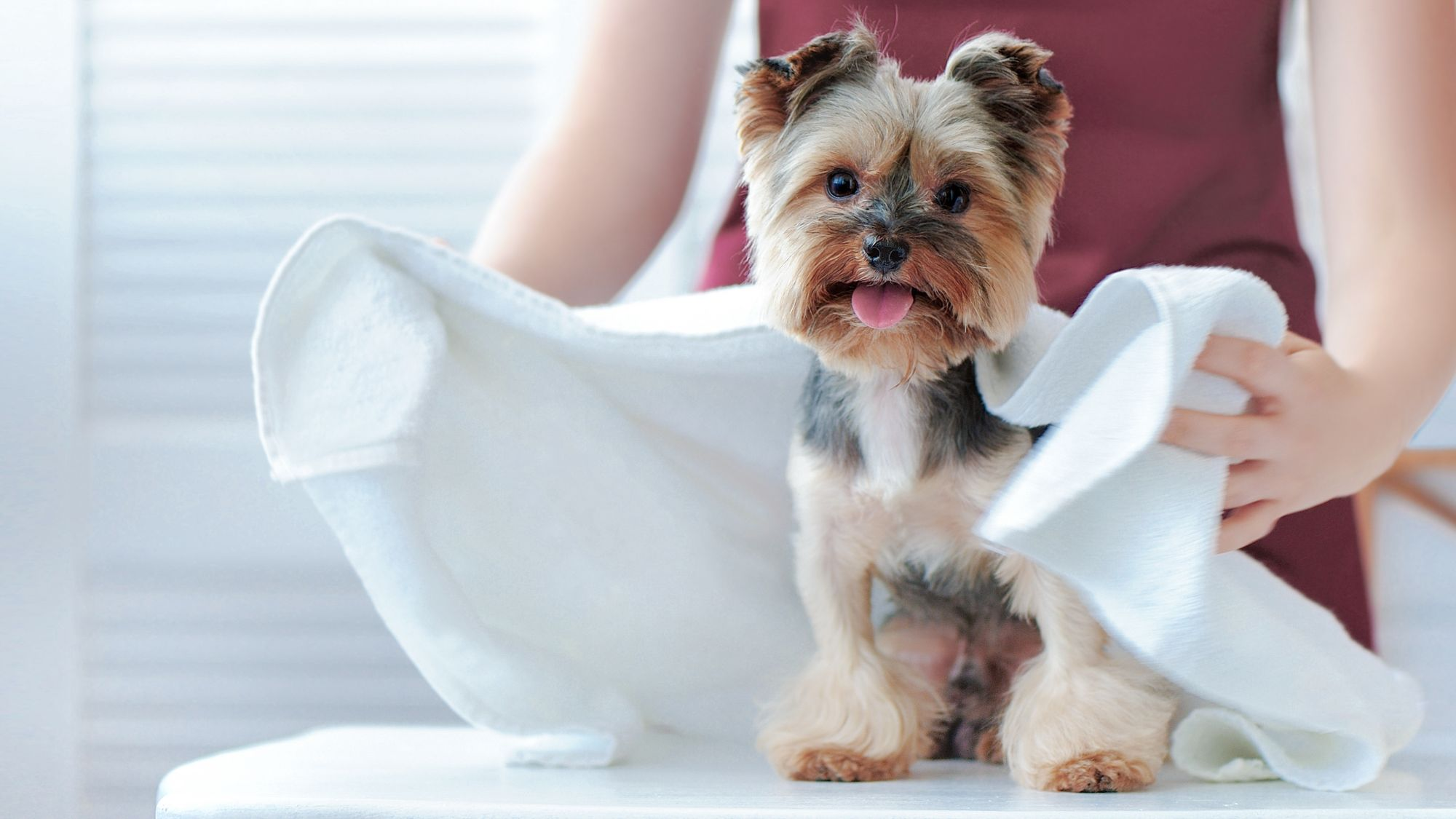
Unique products for your Yorkshire Terrier
View the entire range of Royal Canin's Yorkshire Terrier Breed Health products. Perfect for your small but feisty companion, our range ensures they receive the correct nutrition to support good health and wellbeing.Related Articles
Like & share this page